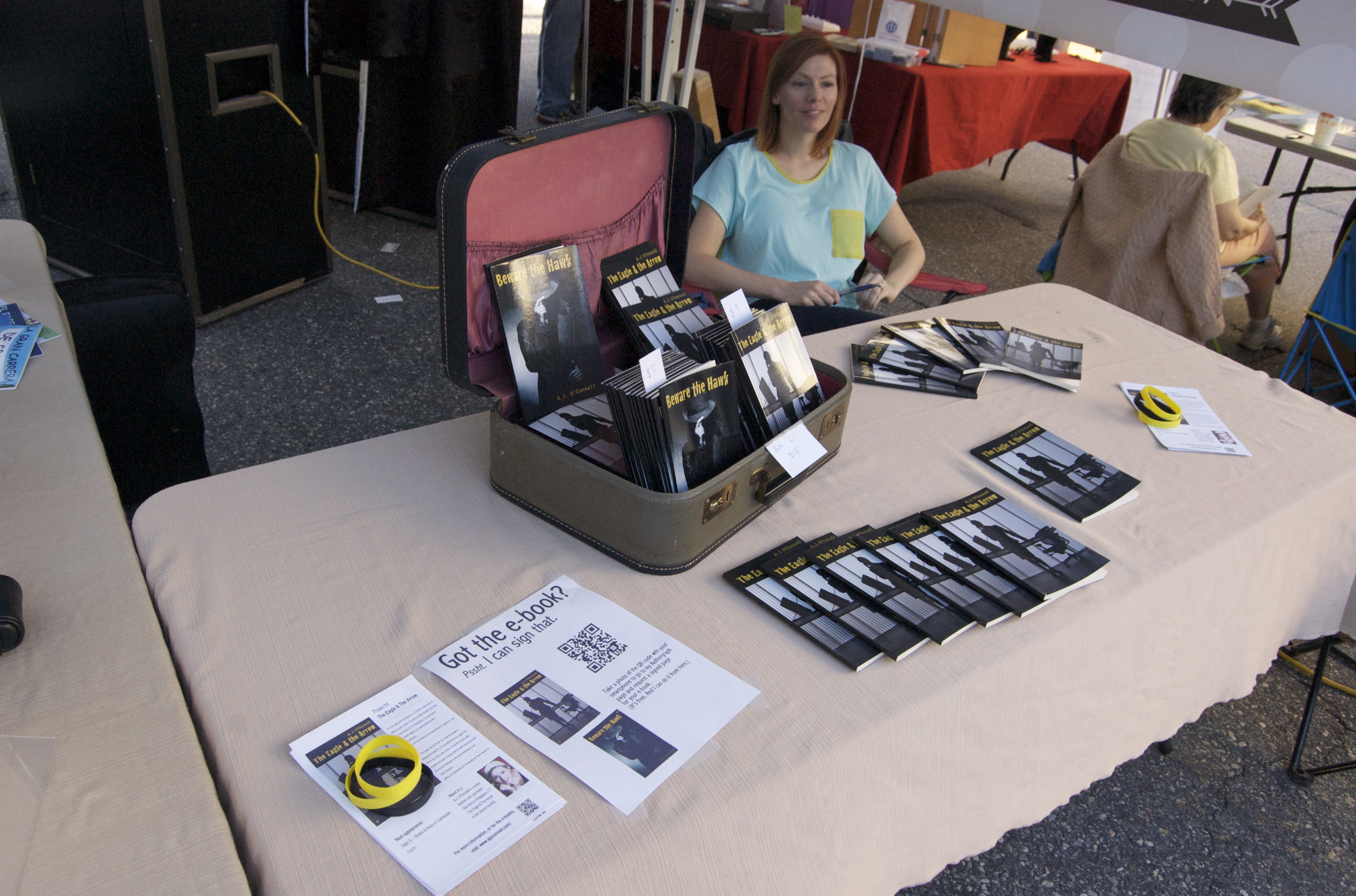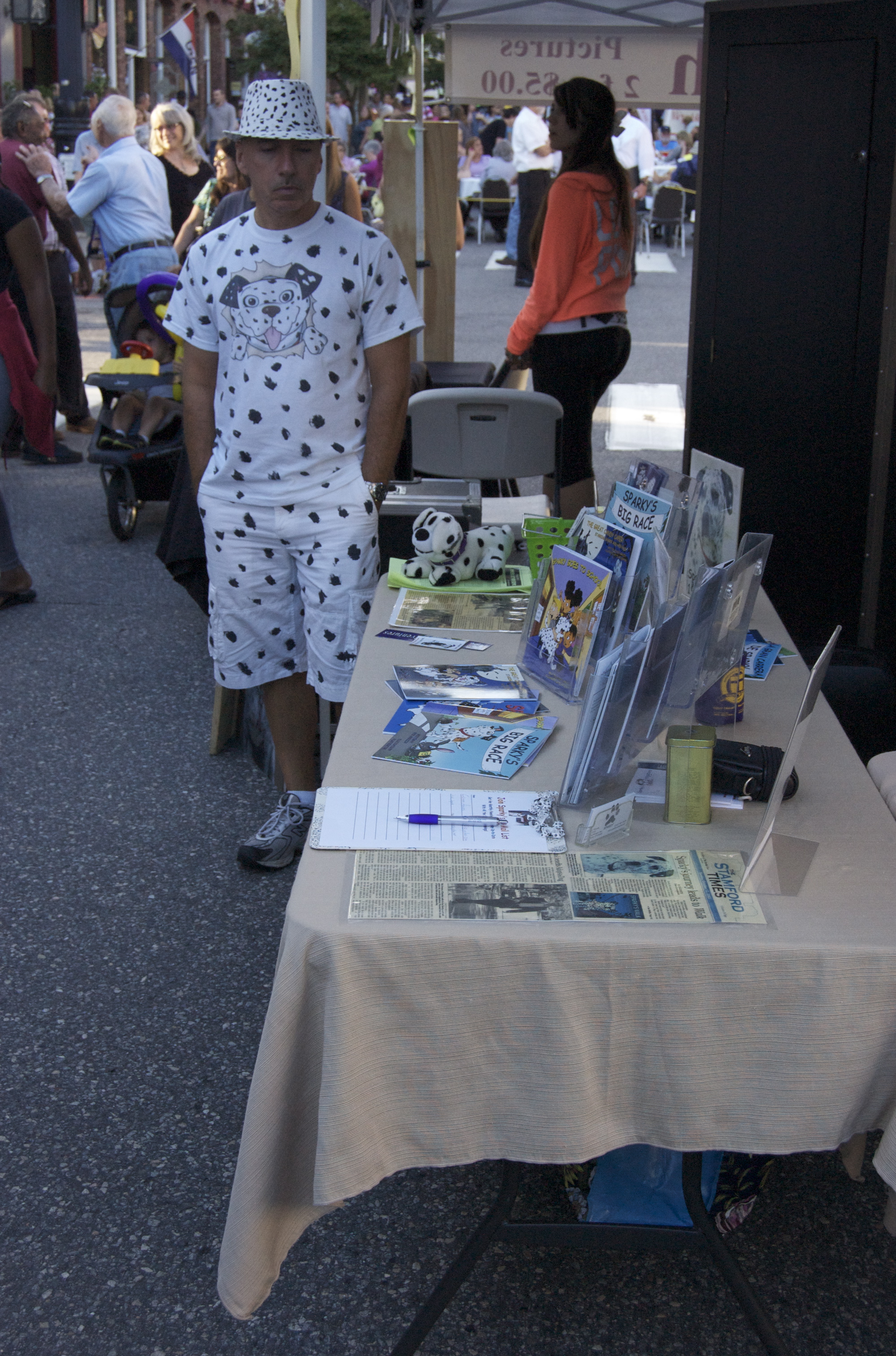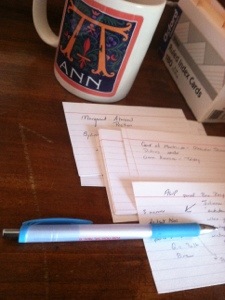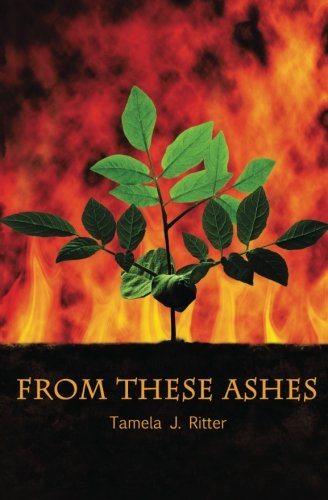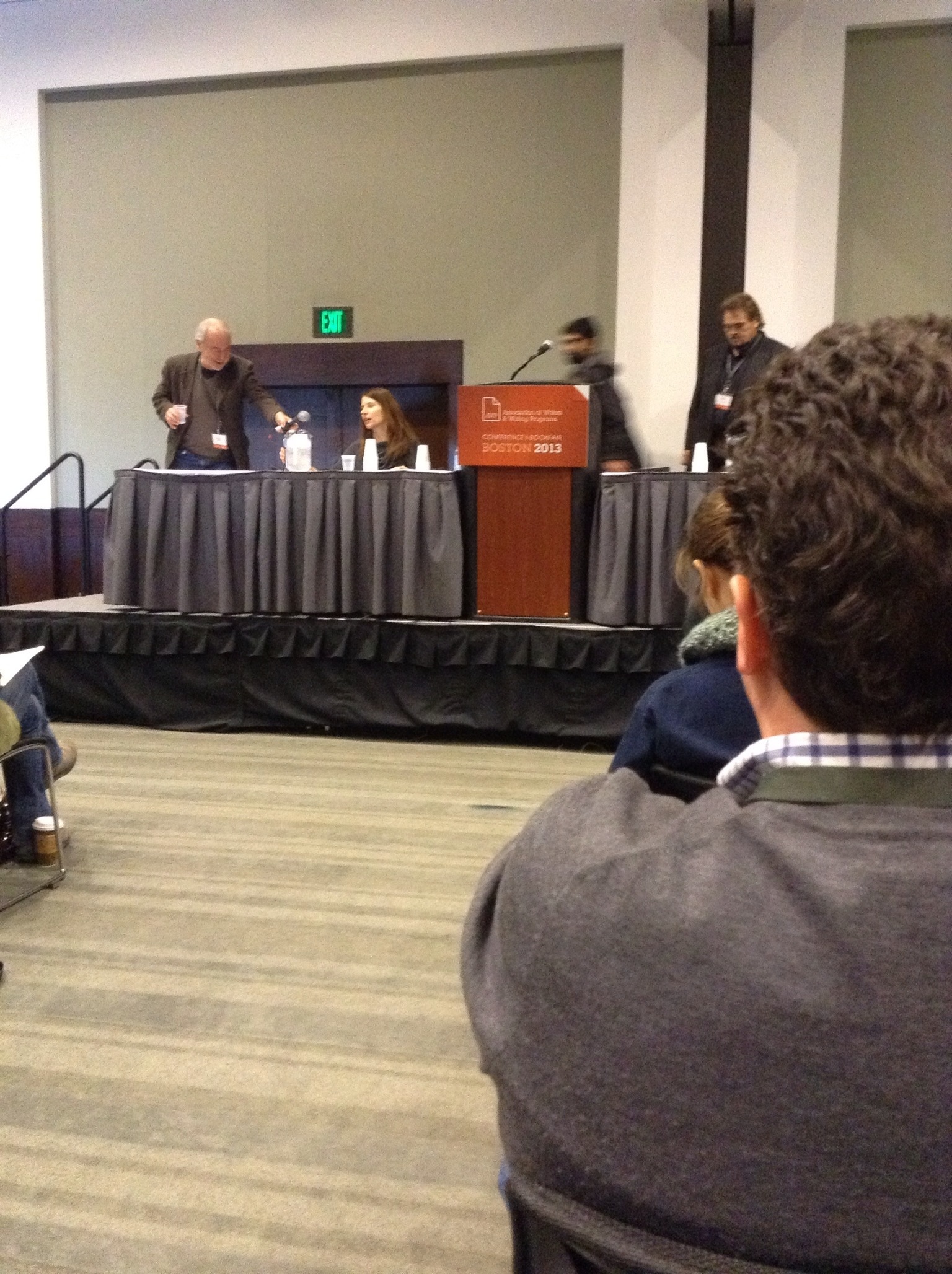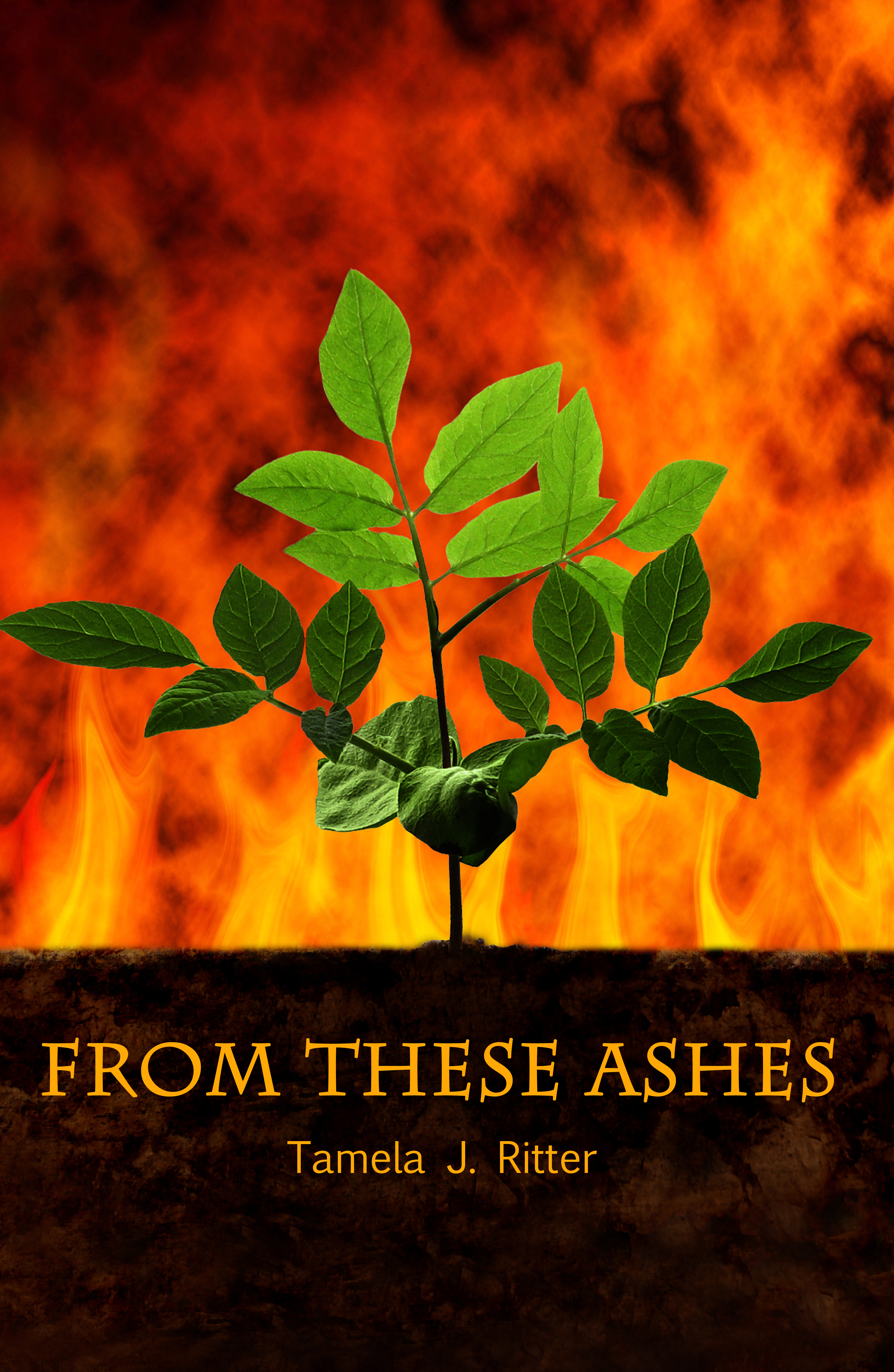 I met Tamela Ritter about 10 years ago, in a writing group called Pencils! which met in a Barnes & Noble in Connecticut. We were allowed to bring five pages and read them aloud. The first thing I ever heard Ritter read was a scene featuring an injured young man, with no memory of his identity but a unexplained knowledge of how to survive in the wilderness.
I met Tamela Ritter about 10 years ago, in a writing group called Pencils! which met in a Barnes & Noble in Connecticut. We were allowed to bring five pages and read them aloud. The first thing I ever heard Ritter read was a scene featuring an injured young man, with no memory of his identity but a unexplained knowledge of how to survive in the wilderness.
I listened intently to the story as the young man patched up his injuries with only a tee shirt and river water purified in beer cans and then… Ritter’s five pages were up and I wanted more.
More is here! It took a decade, but Ritter’s first novel, From These Ashes, was published by Battered Suitcase Press in March. It features the boy without a memory — Tim — his sister Naomi, and their struggle to find a home, themselves and each other in the American northwest.
It’s a marvelous book, and I’m not just saying that because I’ve been wanting it to be published for 10 years. It’s got everything: a coming of age story, family drama, Native American culture, cults and beautiful language. Do yourself a favor and check it out.
On Tuesday I sat down to a g-chat interview with the author herself to talk about the book, her life as a writer and what being a newly published author is like.
This is a two-part interview. When you get to the end, click the appropriate link to go to page two.
Editor’s note: The following interview was conducted over the internet and has been edited. Typos have been corrected, and for the sake of clarity, some sections of the interview have been moved around.
About the Book
A.J.: So, Tamela, you’ve just published your first novel, “From These Ashes.” What has your first month as a published author been like?
Tamela: Sort of crazy. Two weeks ago today I was constantly going to Amazon and looking for myself just to make sure the book stayed there and it wasn’t a dream. Since then it’s just been so many levels of awesome, terrifying and surreal.
A.J.: So you’re not still constantly checking Amazon now? Because I wouldn’t judge you if you were.
Tamela: I’ve curbed the instinct and now it’s only a daily thing, not an hourly thing. It doesn’t change much there after a while, yeah?
A.J.: Well, the reviews will be coming in now. That’s something that changes for a while.
Tamela: That’s exciting. I love seeing what people’s reactions are, what resonates with them, what sticks. It’s always so different and random. People have been nice to it so far, both there, on Goodreads and in my life. It’s good to hear, and will help beef me up for when people who aren’t related to me read it. 🙂
A.J.: So before we go any further we should probably talk about your book itself. Can you tell me in 25 words or less what your book is about?
Tamela: A brother and sister’s journey to find themselves and each other. Shit, that’s only 11… hold on… A brother and sister and their journeys of discovery as they search for each other and a place to belong. Or something…
A.J.: Great!
Tamela: I liked what you said in your review about a sister who can’t speak and a brother who can’t remember. I will be stealing that from now on, fyi. 🙂
A.J.: That’s cool with me!
Tamela: Do you ever read reviews and wonder where these people were when you were trying to come up with the summary of your story?
A.J.: All the damn time.
A.J.: Your story starts in this very interesting place, with a teenage Naomi – that’s the sister – writing her story in a cult recovery center. And you find out in the opening chapter that she and her brother Tim are Native American and that Native American-ness is a big part of the plot. Why did you choose to incorporate those two elements: cults and American Indians?
Tamela: Haha, I just answered this question in the only other interview I’ve ever done. Now here I am already repeating myself. Lets see if I can jazz it up for you.
Neither of these elements were going to be a part of the story if you can believe that. I never in a million years thought I’d be writing about Native Americans because for so long, my own status as one has been something that I knew was true about me, but never knew what it meant to be Indian. I am Cherokee on my mother’s side. My mother comes from a very troubled family and I believe that she attributes some of this to “being Indian” so all I know about it is from my grandmother, Naomi. But, like I said, troubled family, so we didn’t spend a lot of time with her, but what I remember is how proud she was of her heritage, how tightly she held onto it and also it seemed to me that she held my brother Tim up and loved him just a little bit more special because of all of us, he looked the most Indian.
So, when it came time to explain why my character Tim was so special, it just came to me that he should be Indian. It all came from there.
A.J.: You know, I always knew that your brother Tim was the reason why the brother in the story was named Tim, but I didn’t know where the name Naomi came from.
Tamela: And the cult was a bit like that too… actually the cult was entirely the fault (or credit) of NaNoWriMo [National Novel Writing Month]. I needed a crisis, a conflict and I had this guy (Larry) and I didn’t know what to do with him as there was no way I was going to make my story about evil step-fathers. And it just came to me and for me, they both tie together because for me both are about finding a place to belong.
A.J.: I want to ask a little more about the Indian aspect of the novel. Did you do a lot of research into tribes and reservation life?
Tamela: I did do a lot of research… but I also did a lot of living around reservations, having friends in reservations and absorbing as much as I could with no other reason besides that people fascinate me.
A.J.: When did the story in “From These Ashes” first occur to you, and how?
Tamela: At first it was bits and pieces, stories I wanted to tell, like about my brother’s death, writing exercises that got away from me, and then I started to notice that all the stories had the same protagonist and they all sort of looked like my brother in my mind. It was right around this time that I first heard about NaNoWriMo the first time and I thought, ‘What a perfect excuse to make something of this.’
A.J.: That was in 2003?
Tamela: 2004
A.J.: I read it back then, and I remember it being a great novel. But it was a little different. How has the novel grown since 2004? What’s changed?
Tamela: Man, sometimes, like when I read through it after I’d made the first round of edits with my editor everything seems different than it was, but other times I look at it and see hardly any changes. Well, except the first chapter. The first chapter had always been a mess and stayed that way for a long time. I just didn’t have any ways to fix it back then, didn’t have the skills required, but when that came in place (many, many years and attempts later), everything else were such easy fixes it felt it had always been that way.
A.J.: It’s a story that goes to some dark places. Did it always?
Tamela: Um… yeah. Dark places are sadly sort of my thing. I mean, like everything else, I didn’t set out to tell a story that would rip out my heart as I wrote it. I never set out to tell those stories, they just sort of happen to my fiction.
Man, makes me sound like I had no plans whatsoever… which I guess is sort of true. Still…
A.J.: You’ve got a lot of complicated characters in this book; not all of them are great people but all of them are sympathetic. Who was the most difficult to write?
Tamela: Hmmm, tough one. I guess the hardest and the one I was most terrified of not getting right was Virginia, the mother. For a very long time she was just “the villain” and I did very little to flesh out how or why. Then I overcompensated and tried to give her a shit ton of back story (which was why my first chapter was always such a mess). It wasn’t until we get to The Way and I started exploring other aspects of her, that I started to see how I could flesh her out without having to give her whole life story. I just had to keep remembering, no one’s the villain in the story of their own life. And just like her children, she was searching for something too.
Next section: About the Author

